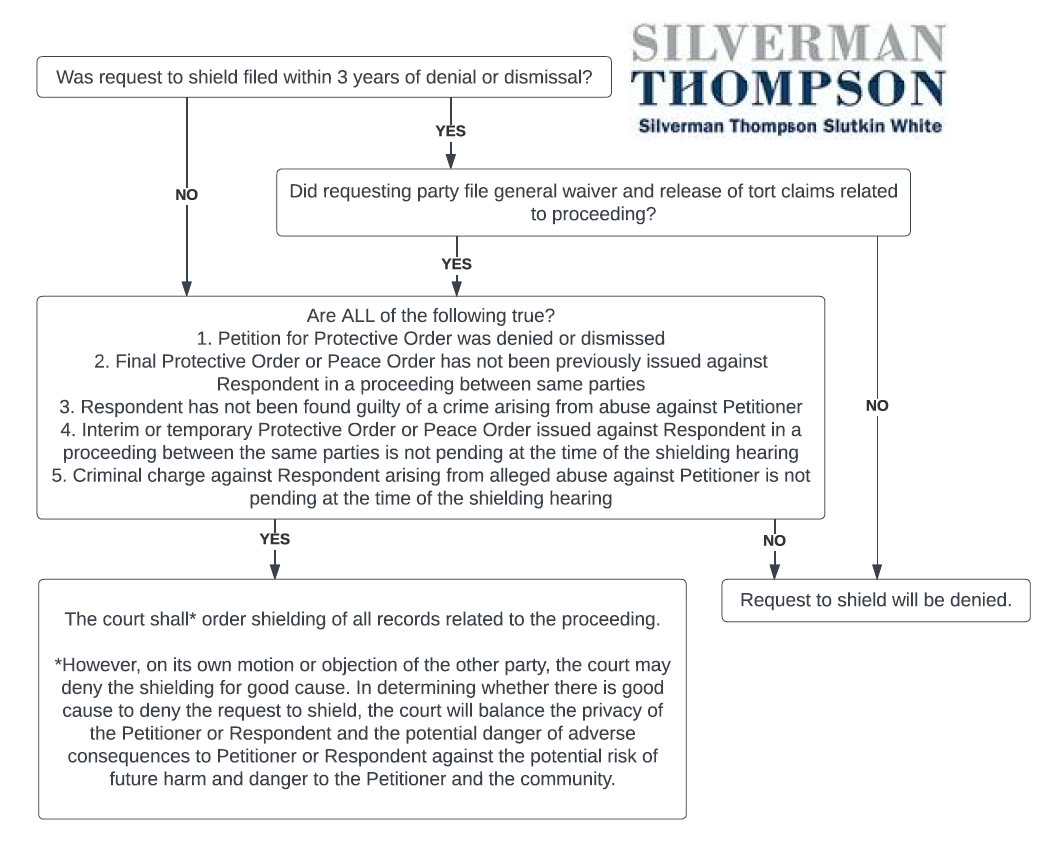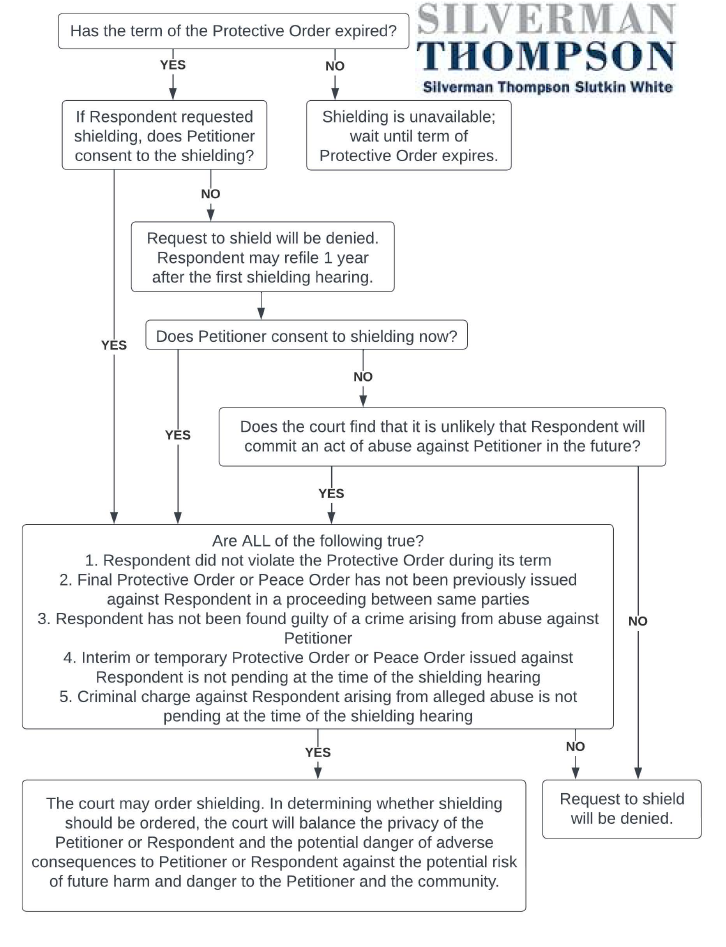What is an Absolute Divorce?
The effect of Maryland’s absolute divorce is parallel to a traditional divorce; it is the final termination of the marriage. In an absolute divorce, custody, visitation, and child support terms between both parties are set, both parties are granted the right to live separately and apart, a legal name change may be granted (the resumption of a former name), and even remarry if they choose. An absolute divorce also allows the court to decide on matters regarding alimony and marital property, including any division of assets, transfer of retirement interests, and any other equitable distribution of real property, personal property and pension/retirement assets acquired during the course of the marriage. Ultimately, both parties are granted the right to sever all legal and financial ties from one another.
What are the grounds for divorce in Maryland?
In Maryland, the court may grant an absolute divorce on the grounds of:
(1) Adultery;
(2) Desertion, if it has continued for 12 months without interruption before filing for an Absolute Divorce; and the desertion was deliberate and final; and there is no reasonable expectation of reconciliation;
(3) Conviction of a felony or misdemeanor in any state or in any court of the United States if before the filing of the application for divorce the defendant was sentenced to serve at least three years or an intermediate sentence in a penal institution and served twelve months of that sentence;
(4) A twelve-month separation where the parties lived separate and apart without cohabitation for twelve uninterrupted months before the filing of the application for divorce;
(5) Insanity if the insane spouse has been confined in a mental institution, hospital, or other similar institution for at least three years before the filing of the application for divorce; the court must then determine from the testimony of at least two physicians who are competent in psychiatry that the insanity is incurable and that there is no hope of recovery; and one of the parties has remained a resident of this state for at least two years prior to the filing of the application for divorce;
(6) Cruelty of treatment toward the complaining party or a minor child of the complaining party, if there is no reasonable expectation of reconciliation;
(7) Excessively vicious conduct toward the complaining party or a minor child of the complaining party, if there is no reasonable expectation of reconciliation;
(8) Mutual consent so long as the parties execute and submit to the court a written settlement agreement signed by both parties that resolves all issues arising from the marital relationship (child custody, visitation, support, alimony and distribution of real and personal property, and asset division), neither party has filed a pleading to set aside the settlement agreement prior to the divorce hearing required under the Maryland Rules, and both parties appear before the court at the absolute divorce hearing.
Can I file for divorce if I have not been separated for one year?
While a 12-month statutory “no fault” ground remains a common way to receive an absolute divorce in Maryland, a party may be eligible to be granted an absolute divorce on fault based grounds requiring no period of separation if one can prove adultery, cruelty of treatment, excessively vicious conduct or have grounds for mutual consent.
What can I do if I do not have grounds to file for an Absolute Divorce?
A party may file for a Limited Divorce on the following grounds:
(1) Cruelty of treatment of the complaining party or of a minor child of the complaining party;
(2) Excessively vicious conduct to the complaining party or to a minor child of the complaining party;
(3) Desertion; or
(4) Separation, if the parties are living separate and apart without cohabitation
What is a Limited Divorce?
In Maryland, a limited divorce is not a final divorce. It does not terminate a marriage in its entirety. A limited divorce does not allow a spouse to remarry or to move forward in another relationship. A limited divorce is typically recommended in cases where division of marital property, spousal support, child custody, or child support are disputed and relief is sought by either party. Essentially, a limited divorce allows a party who has not yet met the grounds for an absolute divorce to obtain necessary relief from the court for custody, visitation, child support, use and possession of family home, family use personal property and family vehicle (when minor children are involved) in advance of a twelve-month separation.
What if the difference between a Limited Divorce and an Absolute Divorce?
The State of Maryland recognizes two types of divorce, an absolute divorce and a limited divorce.
An absolute divorce is the final termination of the marriage where custody and visitation terms for minor children are set, both parties are granted the right to live separately and apart, legally change their names, divide marital property, seek spousal support, and even remarry if they choose. In some cases, a physical separation of more than 12 months in different homes is not necessarily required before the filing for an absolute divorce if a party can prove adultery, cruelty of treatment, excessively vicious conduct or have grounds for mutual consent.
However, there are a number of scenarios where spouses may not be eligible to obtain an absolute divorce. Where a fault based divorce cannot be proven, a 12-month separation has not yet accrued, and the parties cannot mutually consent to a settlement agreement and some relief from the court in the interim is necessary, a limited divorce is then an option.
A limited divorce differs from an absolute divorce in that it is not a final divorce. A limited divorce does not allow a spouse to remarry. Furthermore, marital property acquired by each party even after a limited divorce is awarded remains a part of divisible marital property. The court is required to value all marital property only at the time of absolute divorce. Filing for a limited divorce will allow the court to decide on matters regarding child custody, child support, and spousal support.
If the parties later satisfy the grounds for an absolute divorce while the action for limited divorce is still pending in the court, the complaint for limited divorce can be amended to include a request for absolute divorce. Simply put, when an absolute divorce issue is not yet ripe, a limited divorce proceeding can allow a party to obtain certain relief from the court.
What can a Court award in a Limited Divorce?
Generally, in a limited divorce proceeding, the court can determine child custody and visitation, when children are involved the use and possession of family home, vehicle, household furnishings, child support, temporary alimony, and can award attorney fees.
What can a Court award in an Absolute Divorce?
Generally, in an absolute divorce proceeding, the court can change a spouse’s name back to any former name, award custody, decide visitation, determine the amount of child support and alimony to be paid, grant a monetary award, when children are involved decide the use and possession of family home, vehicle, household furnishings, award attorney and expert fees and costs, order certain jointly titled assets to be sold, divide or order the sale of household furnishings, and order the division of pension and retirement accounts.
How long does it take to get an uncontested divorced in Maryland?
It varies in each county, however if you already have a complete Marital Settlement Agreement signed by both parties and the proceeding is uncontested, typically between 3 – 6 months.
How long does it take to get divorced in Maryland?
It varies by county, however if your matter is contested and all issues are not resolved by a signed Marital Settlement Agreement, you can expect your contested divorce to take anywhere from 1-2 years.
If you or someone you know is considering divorce, we encourage you to speak to an experienced family attorney at Silverman, Thompson, Slutkin & White, LLC who can help you decide the right choice that is specific to your circumstance.
For more information, contact Monica Scherer, Esq. at 410-625-4740.
Monica L. Scherer, Esq.
mscherer@silvermanthompson.com
(410) 385-2225
Joseph S. Stephan, Esq.
jstephan@silvermanthompson.com
(410) 385-2225
Erin D. Brooks, Esq.
ebrooks@silvermanthompson.com
(410) 385-2225
Continue reading →
 Maryland Divorce Lawyer Blog
Maryland Divorce Lawyer Blog



